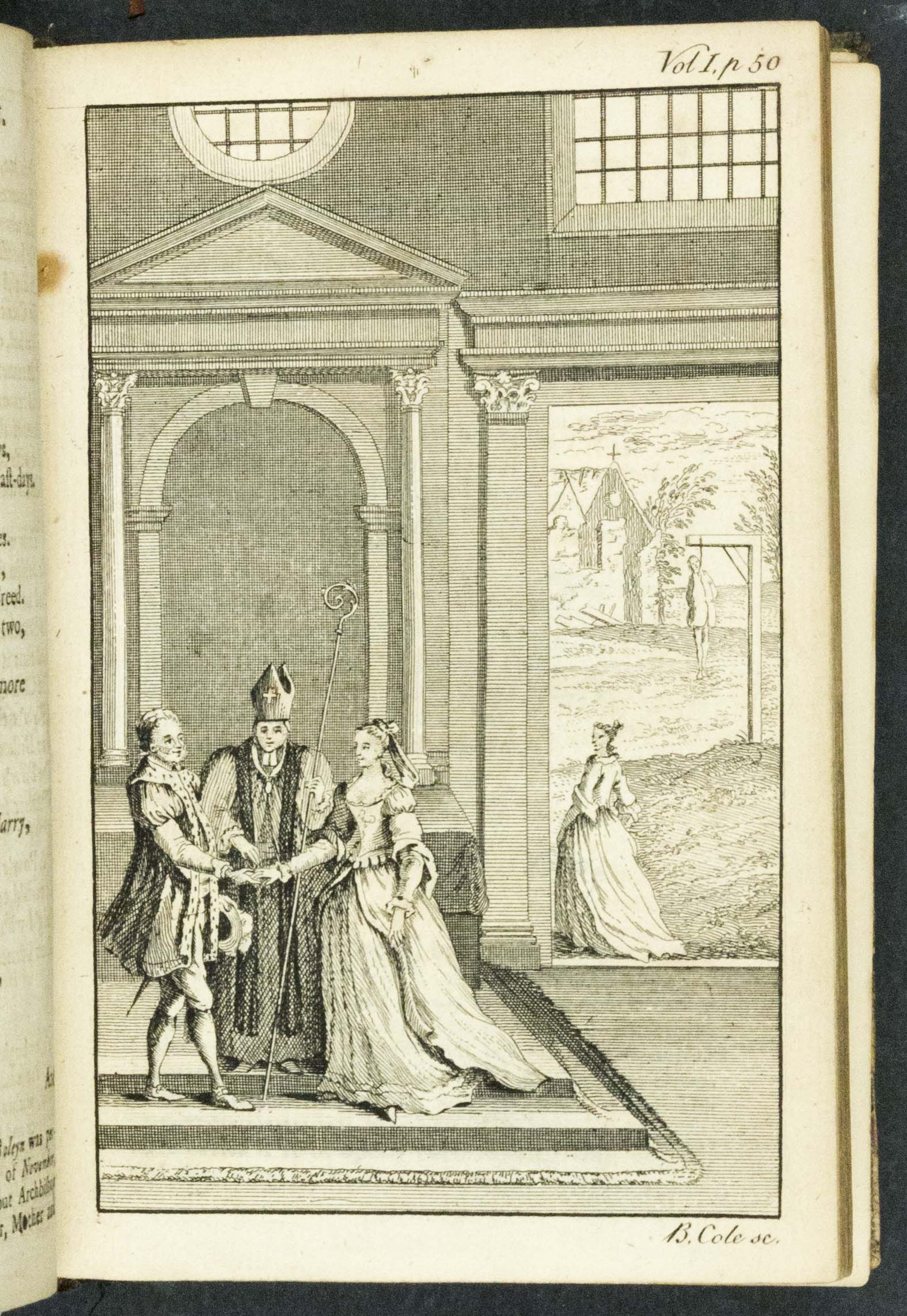
Thomas Ward
London: [s.n.], 1747
[G.S.C.] 2382
Thomas Ward (1652-1708) was a Roman Catholic convert who researched key documents relating to the religious history of England while in Rome with a commission in the Pope’s guards. Although unfinished, his poem on the English Reformation was his most popular work. Ward modelled the verse on Samuel Butler’s Hudibras and chose to write burlesque in order to appeal to the spirit of his own age. The argument at the beginning of the first canto makes clear Ward’s allegiance, referring to ‘the true Religion’s Alteration’, to abbeys falling, bloodshed, ‘rapine, sacrilege, and theft’, and feuds bred by Marian exiles. Ward’s summary of the cause of the Reformation exemplifies the poem’s style:
When Old King Harry youthful grew,
As Eagles do, or Hawks in Mew,
And did, in spite of Pope and Fate
Behead, Rip, and Repudiate
Those too-too long liv’d Things, his Wives,
With Axes, Bills, and Midwives Knives:
When he the Papal Power rejected,
And from the Church the Realm dissected,
And in the Great St. PETER’s Stead,
Proclaim’d himself the Church’s Head.
When he his antient Queen forsook,
And buxom Anna Boleyn took,
Then in the Noddle of the Nation
He bred the Maggot, Reformation.